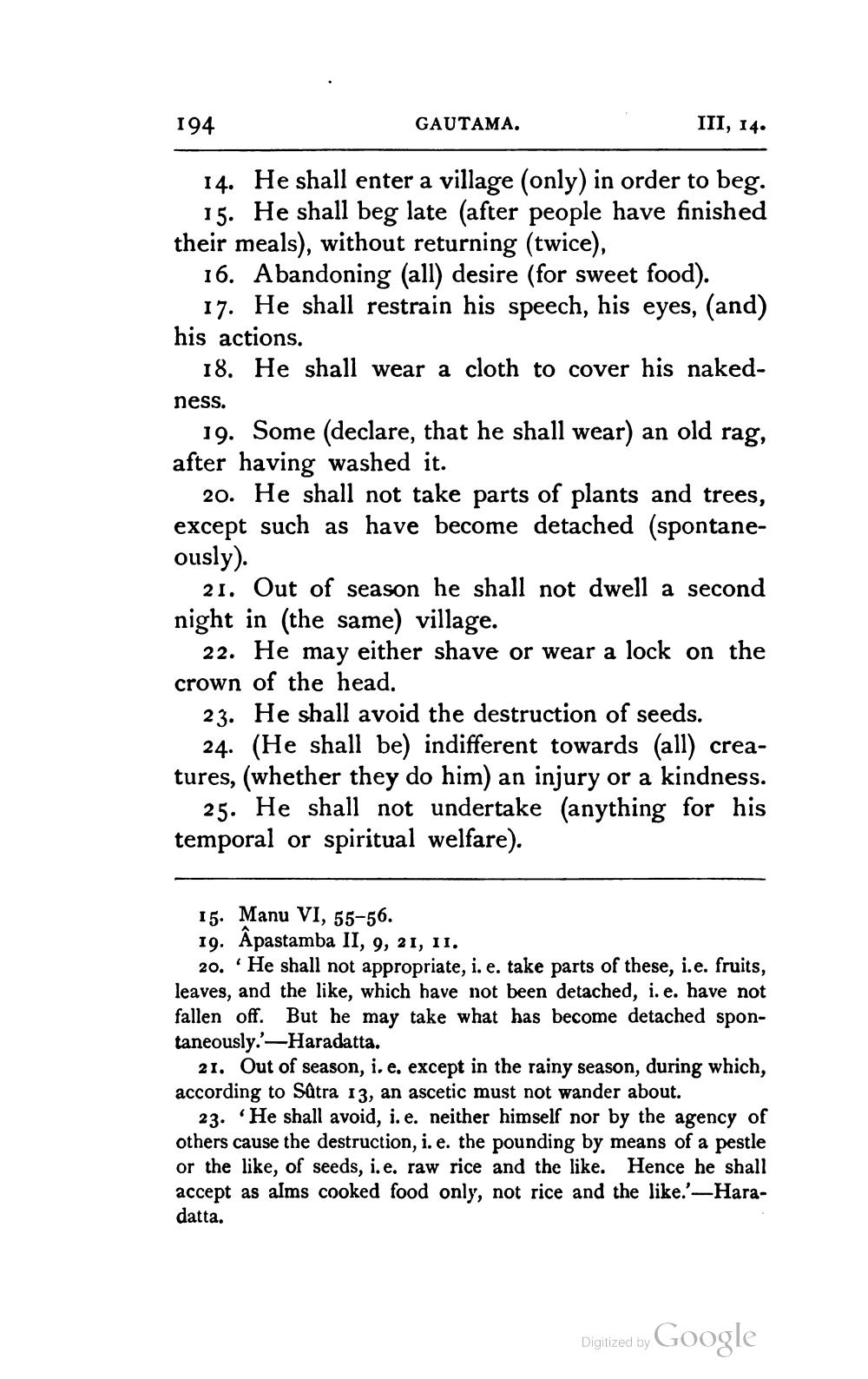________________
194
GAUTAMA.
III, 14.
14. He shall enter a village (only) in order to beg.
15. He shall beg late (after people have finished their meals), without returning (twice),
16. Abandoning (all) desire (for sweet food).
17. He shall restrain his speech, his eyes, (and) his actions.
18. He shall wear a cloth to cover his nakedness.
19. Some (declare, that he shall wear) an old rag, after having washed it.
20. He shall not take parts of plants and trees, except such as have become detached (spontane
ously).
21. Out of season he shall not dwell a second night in (the same) village.
22. He may either shave or wear a lock on the crown of the head.
23. He shall avoid the destruction of seeds.
24. (He shall be) indifferent towards (all) creatures, (whether they do him) an injury or a kindness.
25. He shall not undertake (anything for his temporal or spiritual welfare).
15. Manu VI, 55-56. 19. Apastamba II, 9, 21, 11.
20. He shall not appropriate, i.e. take parts of these, i.e. fruits, leaves, and the like, which have not been detached, i.e. have not fallen off. But he may take what has become detached spontaneously. —Haradatta.
21. Out of season, i. e, except in the rainy season, during which, according to Satra 13, an ascetic must not wander about.
23. He shall avoid, i.e. neither himself nor by the agency of others cause the destruction, i.e. the pounding by means of a pestle or the like, of seeds, i.e. raw rice and the like. Hence he shall accept as alms cooked food only, not rice and the like.'-Haradatta.
Digitized by Google




